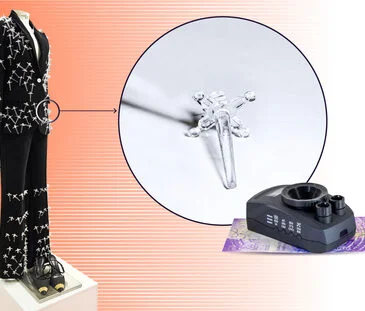An audited financial statement released recently by the World Bank has revealed that Nigeria’s Digital Identification for Development (ID4D) project made a foreign exchange benefit of 8.6 billion Naira (around US$5.4 million) following a drop in the value of the Naira last year.
The funding boost could help the country’s digital identity authority pay for a series of expected upgrades to the national ID system.
The Nigeria ID4D project, whose accounts are largely in foreign currencies, notably the U.S. dollar and euro, saw a surplus on withdrawals in the home currency as the amount received in dollars and euros had higher exchange rates.
Per the report, the Central Bank of Nigeria, in 2023, received funding for the digital ID project into accounts overseen by the National Identity Management Commission (NIMC), to the tune of $2.538 million and €3.03 million, respectively.
The report indicates that following the devaluation of the Naira last year, one dollar was exchanged for NGN 898.8 by the end of the year, while one Euro went for NGN 993.9, as opposed to lesser exchange rates at the start of the year.
With the exchange rate having further fallen to roughly NGN1,600 per dollar and NGN1,750 per euro, it is expected that the Nigeria ID4D project will make more earnings from forex available to carry on with some activities within the framework of the project.
Those include procurement of backup power systems, a Computer Emergency Response Team (CERT) and Security Operations Center (SOC), upgrades to the country’s data recovery center, and software for contact center and customer relationship management (CRM), reporting by Nairametrics notes.
The Nigeria ID4D project is costed at $430 million dollars with the funds provided by the World Bank, the French Development Agency and the European Investment Bank.
The funding agreement was reached in 2020 to support Nigeria’s plan to issue at least 148 million digital IDs to citizens by June 30, 2024.
This objective was not met, which meant certain components of the project needed to be readjusted in order to ensure continuous financing from some of the co-funders.
Among the conditions to be fulfilled by Nigeria following the revision of the project is the putting in place of a more robust legal framework to govern the country’s legal and digital identity landscape with legislation in July. The passage of the country’s Data Protection Act last year was another.
The World Bank mentioned in its financial statement that so far, under 40 percent of the total sum ($430 million) initially allocated for the Nigeria ID4D project has been disbursed. This means just slightly above $160 million has been made available to the Nigerian government.
In the latest update, the NIMC said over 109 million citizens have now been issued a digital ID in Nigeria.
The funding gain is also an opportunity for NIMC to improve on the 30 percent rate of birth registration noted in the financial report.
Article Topics
biometrics | digital identity | Identification for Development (ID4D) | national ID | National Identity Management Commission (NIMC) | Nigeria | Nigeria ID4D | World Bank




